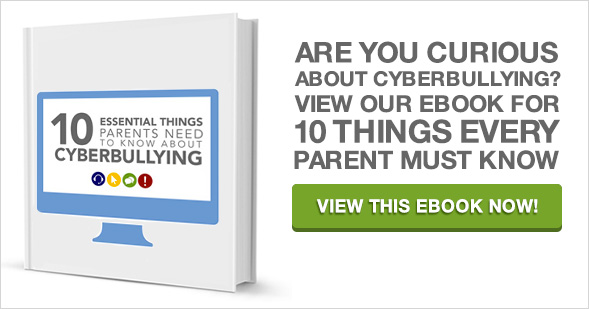

For the month of October, during National Bullying Prevention Month, we are posting interviews we conducted with some of the most influential people in the cyberbullying prevention space. The next in the series involves Jill Buban, Dean, School of Education at Post University.
uKK: What is the nature of your expertise on cyberbullying?
JB: My experience with cyberbullying spans K-12 and college students, as well as in my experiences as a parent of an elementary school child. As a parent, previous high school teacher, college instructor, and currently, college administrator, cyberbullying is ever present and should be a top concern for parents and places of learning.
uKK: What do you believe is the number one thing that can be done to draw attention to and prevent this trend?
JB: The number one thing that can be done to draw attention to and prevent this trend is parent, school and community acknowledgement of this increasing trend. Parents need to monitor child e-activity and set parameters on its use at a young age. Teachers and administrators should face cyberbullying directly by explaining what it is and why it can be such a big problem.
uKK: What online trends do you believe contribute to this trend, and how should those issues be addressed?
JB: Taking advantage of online tools and resources can be very positive for children as they learn how to use technology at a young age. At the same time, the anonymity often afforded to people who go online along with the ability to communicate without any immediate face-to-face feedback, can lead to cyberbullying and cause real harm to children. Another trend that contributes to cyberbullying is parents being plugged in all the time. When children see parents and role models always texting, surfing the Internet, and visiting social media outlets, they think it is acceptable behavior and/or yearn to model this behavior. Given that most children don’t have a well-developed sense of what’s appropriate and inappropriate behavior in an online setting, the possibility for cyberbullying grows. As a parent, it’s important to set parameters for yourself and be a good role model with technology use. If you need to be online, send a text, or check social media sites while your child is present, explain to your child that it’s either part of your job or a necessity for some other reason. If it isn’t a necessity let it wait!
uKK: What steps can parents take to educate themselves and become better informed about potential incidents?
JB: Many school districts have policies and general information about cyberbullying: start there. Then check with your local government and library. There are many online resources as well. The better informed you are, the better able you’ll be to talk to your child about the risks of cyberbullying and recognize any potential warning signs that your child is being bullied, or is engaging in cyberbullying in some way.
uKK: What is the best thing for a parent to do when finding out their child has been cyberbullied?
JB: Talk to your child. Listen to your child. Then report it to the school where your child is enrolled. If you’re comfortable doing so, contact the cyberbully’s parent in a calm and reasonable manner. If it is a serious incident, call the police. If you see your child is really suffering contact a counselor – either through the school or privately.
uKK: What are some of the best resources parents can turn to in these situations?
 JB: Schools should have resources, as should local police stations. If not, then parents should advocate for these resources. If it is happening to your child who is in college, try to get your child to advocate for him or herself (yes, this happens among males too) by visiting a university-sponsored counseling center. If this isn’t possible, the parent needs to get involved and advocate on behalf of the child.
JB: Schools should have resources, as should local police stations. If not, then parents should advocate for these resources. If it is happening to your child who is in college, try to get your child to advocate for him or herself (yes, this happens among males too) by visiting a university-sponsored counseling center. If this isn’t possible, the parent needs to get involved and advocate on behalf of the child.
uKK: What is the best thing for a parent to do when finding out their child has cyberbullied someone else?
JB: Talk with your child and carefully listen to what he or she has to say before jumping to conclusions. Then, carefully explain to your child what cyberbullying is and why it’s so important that she stop doing anything that could potentially make someone else feel bad. Don’t accept the bad behavior or make excuses for it, and be sure there are appropriate consequences to help ensure that your child doesn’t repeat this behavior. It’s also important that your child apologizes to the other child and that you speak to that child’s parent. Let your child know that you’re doing this and explain why it’s so important to apologize for the behavior.
uKK: What is the best thing for a child/teenager to do if he has been cyberbullied?
JB: Step away from the device – don’t react, don’t retaliate, and don’t get your friends involved in any retaliation. Talk to a trusted adult. If you can’t talk to your parents, talk to a teacher, family friend, or someone else you are comfortable with.
uKK: Is there any additional information you would like to provide to our readers?
Bullying is real. It can have a long lasting effect on a child. Cyberbullying is happening at younger ages since some children have e-devices in grade school. Take the time to talk to your child about what’s appropriate and not appropriate with e-devices, set restrictions and monitor their use. Explain that electronic communication lasts forever and is a very public way to communicate. It’s much harder to “take back” and apologize for something you’ve said electronically – many people have probably seen it and some may have shared it with others. Coach your child on how to talk to adults if they’re being bullied or need help knowing where the lines are. Be proactive, not reactive. Be the parent! Set a rule that says: If you wouldn’t say something to someone’s face, you shouldn’t be saying it online.


